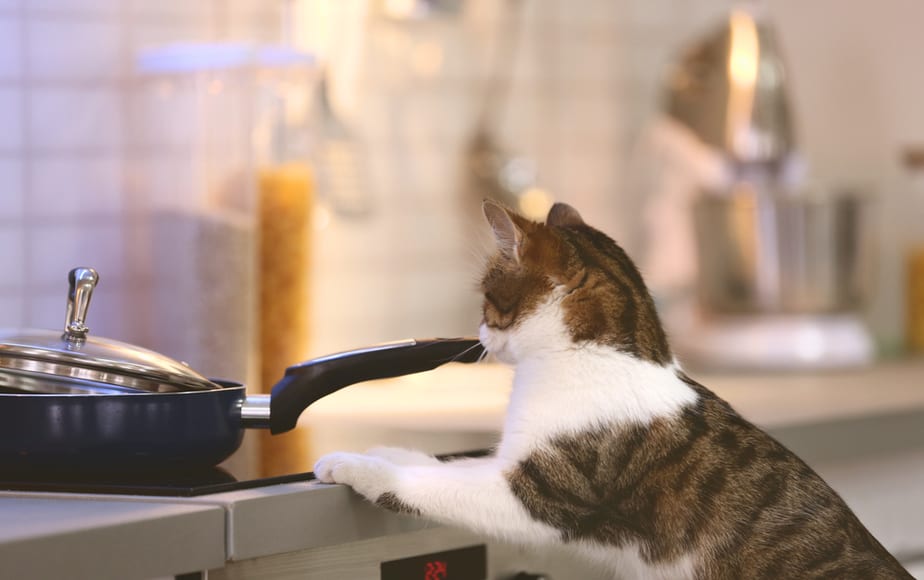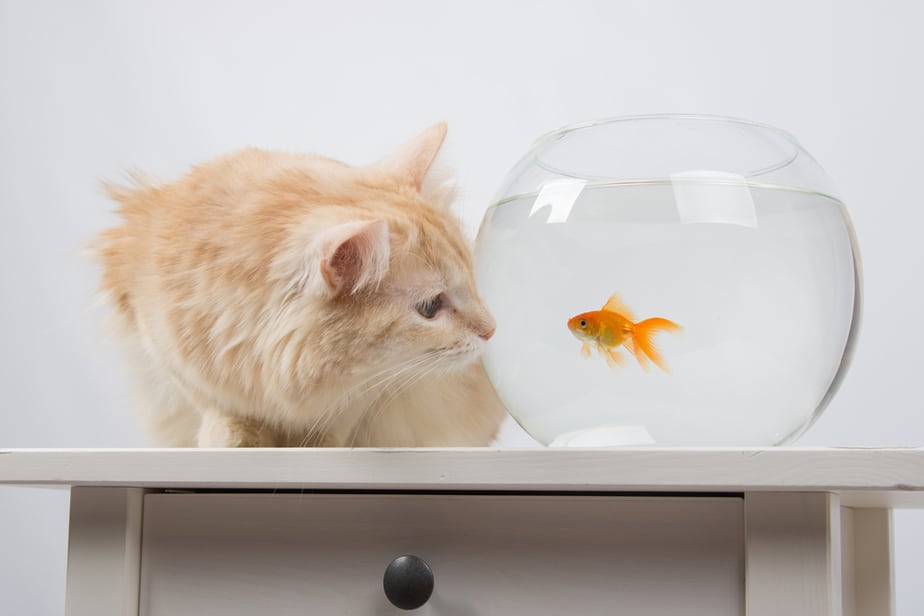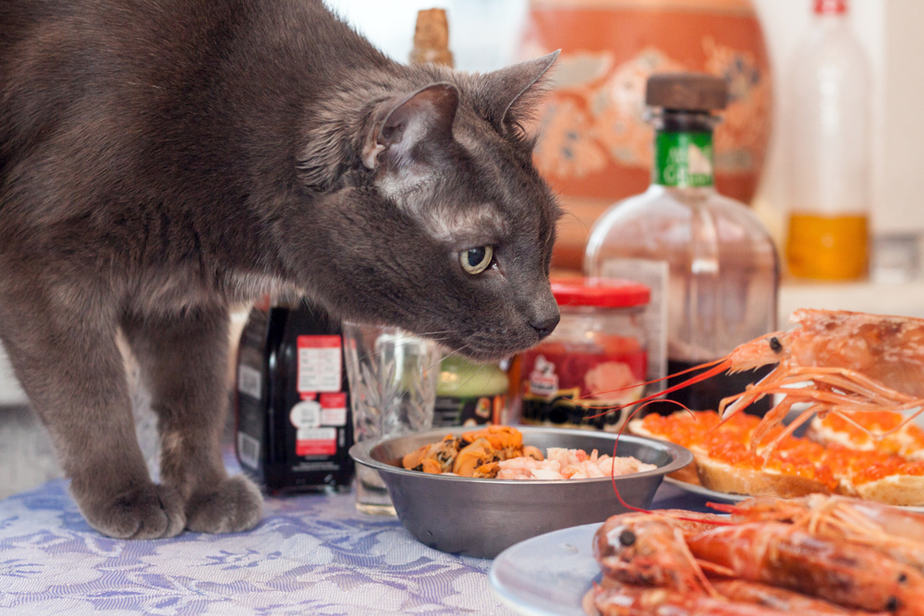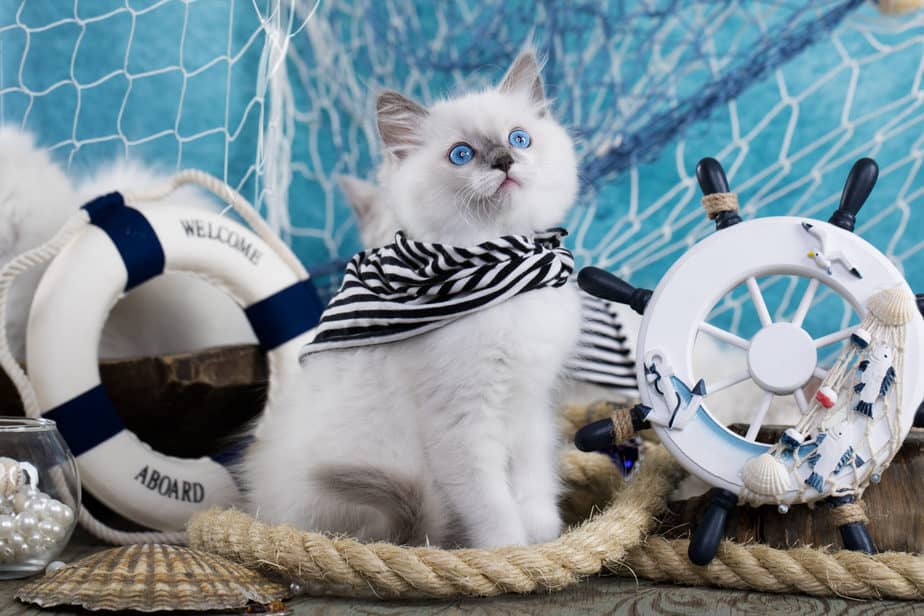Can cats eat raw squid? This seafood delicacy is popular in Mediterranean and Japanese cuisines. It’s not unusual for cats to be fond of seafood. For example, fish make a great part of a cat’s diet, right?
Felines may be unsure of this squishy food at first. It wouldn’t be a shock if your cat turned down the offer because they are picky-eaters sometimes. However, the main question isn’t about your cat being finicky, but about whether raw squid is safe for cats to eat.
Some owners provide a raw diet to their cats, but others strongly disagree. It depends on what kind of raw diet your pet’s on and, after all, it depends on your cat. They are strongly opinionated animals and it’s nearly impossible to change their minds.
Is raw squid dangerous to cats?
Yes, raw squid is dangerous to felines and shouldn’t be a part of their diet. It holds many health risks and if sharing squid with your cat, it’s best to have it cooked first.
Generally speaking, raw foods aren’t recommended, especially raw fish. They can carry certain diseases and be a choking hazard to felines.
Grilled, seared, boiled, braised are all better options than raw squid. If prepared properly, squid can be a great source of protein for felines. As they rely solely on protein intake for growth, they require meat as a main part of their diet.
Cooked squid can benefit your cat because of its many nutrients. It’s an excellent source of zinc, phosphorus, magnesium, as well as vitamins E and B12.
Disease carriers

When prepared in boiling water, squid becomes free of bacteria and parasites, just like any other food. Raw squid includes microorganisms that can be the cause of some serious diseases.
Cats may get food poisoning if the squid they eat is infected with bacteria, the most common of which include listeria, vibrio, clostridium, and salmonella. Nausea, upset stomach, diarrhea, and vomiting are just a few of the symptoms that these bacteria can produce.
Also, parasites such as tapeworms, roundworms, and liver flukes can live in squid. One or more of these parasites could make a home in your cat’s body if she eats raw squid. A parasite infection might have minor to severe adverse effects.
Mercury poisoning
Mercury is a common heavy metal often found in seafood. Enough build-up of mercury in a cat’s body could lead to mercury poisoning, which can be fatal.
Although squid contains minimal quantities of mercury, it’s important to bear this in mind when giving raw squid to your cat. Mercury poisoning can result in slow reflexes and can damage your feline’s nervous system.
Paralysis
As if previous reasons weren’t enough to keep raw squid away from your cat, here’s a much scarier one. Yes, raw squid can paralyze felines. It can cause thiamine breakdown, leading to neurological issues.
Thiamine, also known as vitamin B, is necessary for your cat’s well-being. If your cat’s thiamine levels drop too low, she may have trouble walking and balancing. In severe cases, it can lead to paralysis.

Rubbery texture
Another factor is that undercooked squid is too rubbery for your cat to chew properly. Cooking the squid can easily solve this problem.
Chop cooked squid up into bite-sized pieces to make sure it won’t present a choking hazard to your feline. Even then, you should monitor your cat while she gulps down this delicacy.
If you notice your cat struggling to pass stools or hiding after eating squid, it could mean she swallowed a bigger piece. It’s possible it somehow got through her throat but is stuck in her intestines and created a blockage.
Potential health benefits of squid
Most of us consider seafood a healthy option. So, it doesn’t come as a surprise that you wonder can cats eat raw squid and benefit from it.
Truth be told, squid can help cats meet their zinc requirements. Zinc is a crucial mineral for your cat’s health since it aids in female reproductive organ health, maintains healthy skin, and can make your cat’s coat brighter than your future!
It’s important to underline that cooked squid is only good if fed in moderation. Zinc poisoning can occur if you give your pet too much squid, even if it’s cooked. Zinc poisoning can cause tremors, tiredness, loss of appetite, and even death in some circumstances.
Besides protein, squid is also rich in fat, which is crucial to your cat. Healthy fats found in squid serve as an energy source that keeps your cat warm and her energy levels high. In the wild, felines will eat as much fat as possible to survive through the winter days.

What about raw lobster?
If your cat eats a lot of raw lobster, she may get food poisoning. Lobster that hasn’t been cooked can irritate your cat’s stomach and cause gastric problems, including abdominal pain, vomiting, and diarrhea.
Cooking the lobster for your cat will save you a possible emergency trip to the vet. All potential pathogens are killed once this seafood is properly cooked. It’s also simpler to chew and digest for your cat. Feline’s teeth aren’t made for cracking those hard shells.
Can cats eat raw fish?
As is the case with lobster, your feline may acquire food poisoning if she eats raw fish. Fish that haven’t been prepared can cause stomach irritation and digestive troubles if consumed.
Cooked fish at high heat can eliminate any possible germs. It’s also an easier option for your cat to munch down rather than raw fish. But, if you feed fish bones to your cat, make sure you feed them raw.
Cooked bones are easier to break and their sharp bits can cause damage to your cat’s throat. They also present a choking hazard. If you see a bone in your cat’s bowl that seems fishy, make sure to remove it.
Also, the chances of mercury poisoning decrease if fish is properly cooked. Apart from cooked fish, dried fish is also a delight to your pet.
So, cook that salmon with no additional spices and she’ll lick her whiskers in appreciation!

Raw crab – is it dangerous?
As you can assume, yes, feeding raw crab to felines is harmful. As previously mentioned with the examples of lobster and fish, the same goes for crab meat.
Any experiments related to feeding your cat raw seafood aren’t worth risking her health. Possible germs, bacteria, and parasites are best to avoid. If you’re keen on introducing new seafood to your cat, make sure to consult with your veterinarian about it.
Seafood allergy
A seafood allergy is annoying! Even though seafood isn’t a natural part of a cat’s diet, it would be a shame if your feline companion had to miss out on these delicacies.
This allergy may be present at birth or develop later in life. Cats can eat raw squid, but not without consequences. If you notice a skin rash and/or excessive scratching after eating squid, lobster, or any other seafood, you’ll know your cat is allergic.
She could also display signs of respiratory difficulties, which are accompanied by coughing. Other signs of allergies in cats include shortness of breath and swelling of the throat.
It’s impossible to predict how your cat will react to certain meals. As a result, you should introduce seafood to your pet as gradually as possible.
Small servings at first are best. These will inform you whether your cat has any allergies and what she likes and hates when it comes to seafood. If she turns her nose up to it, don’t try to force it – instead, just quit offering her seafood and rather give her some other cat-appropriate treat.
Read more: Can Cats Eat Caviar? Does This Food Lift Up Their Mood?

Can cats eat raw squid after all?
Raw squid should never find its way onto your cat’s plate. All the dangers lurking behind squid can prove lethal to felines. Pathogens, mercury poisoning, and seafood allergies are reasons enough to avoid it.
If you really want to try offering squid to your furry friend, cook it at high temperatures and serve in small pieces. That’s the only way to ensure she will have a safe meal, free of potential diseases. Remember not to add any herbs or spices, as they only aggravate your cat’s stomach.
Raw squid is also considered a choking hazard because of its rubbery texture – it easily can get stuck in your cat’s throat. If she somehow manages to swallow it, it can furthermore cause problems and blockage. Some cats have to undergo surgery because of swallowing big pieces that aren’t easily digested.
If you don’t want vet bills to skyrocket because of a simple mistake, then don’t do it. So, can cats eat raw squid? No, because there’s no guarantee of her well-being. Your pet’s health should always be your priority and experimenting with new foods without consulting your vet isn’t prioritizing.
Related post: Can Cats Eat Prawns? Is This Food Gold, Silver, Or Bronze?

